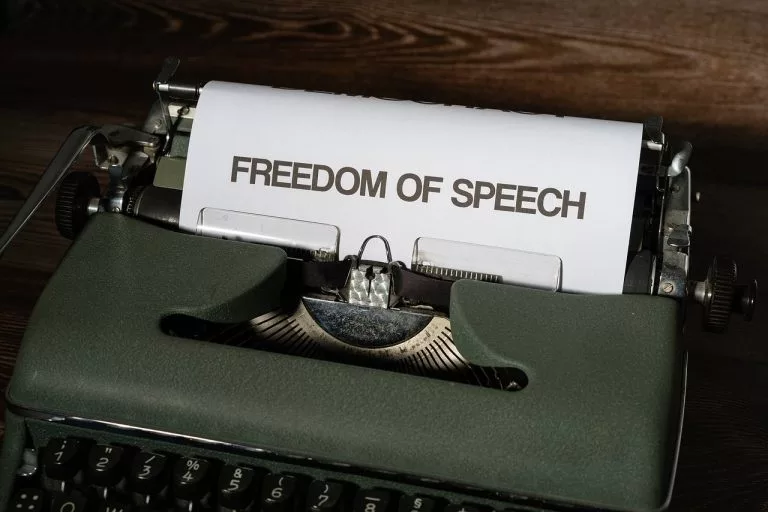Free speech is one of the fundamental pillars of democracy, which allows individuals to express their thoughts, ideas, and opinions freely without fear of censorship or persecution. The ability to express oneself is a fundamental human right and is essential for the development of a healthy democratic society. It enables us to challenge the status quo, to hold those in power accountable, and to advocate for change. Without free speech, we risk living in a society where our thoughts and ideas are suppressed, and our voices silenced.
The History of Censorship and Free Speech
The history of free speech is a long and complex one, with many societies throughout history having engaged in censorship and suppression of free speech. The ancient Greeks, for example, were known for their strict rules on public speech, and during the Middle Ages, the Catholic Church had a powerful influence on what could be said or written. In the 18th and 19th centuries, the concept of free speech began to take hold as a fundamental human right, with the French and American revolutions both championing the concept. However, even in modern times, censorship and suppression of free speech continue to be prevalent in many parts of the world.
The Benefits of Free Speech
Free speech has numerous benefits for society, including the promotion of diversity, tolerance, and understanding. When people can express themselves freely, they can share their ideas and experiences, leading to a greater understanding of different perspectives. It also enables people to challenge the status quo and advocate for change, leading to innovation and progress. Free speech also plays a critical role in the media, allowing journalists to report on important issues and hold those in power accountable.
The Role of Free Speech in Democracy
Democracy is built on the principle of free speech, allowing individuals to express their opinions and ideas and participate in the political process. Free speech enables people to make informed decisions about their leaders, policies, and the direction of the country. Without free speech, democracy becomes a hollow shell, with people unable to express their views or challenge those in power.
The Threats to Free Speech
Despite its importance, free speech faces many threats in modern society. Governments and other powerful organizations often seek to suppress free speech to maintain their power or control the narrative. Hate speech, misinformation, and fake news can also be used to stifle free speech and promote harmful ideas. The rise of social media and other digital platforms has also created new challenges for free speech, with companies often taking a heavy-handed approach to content moderation.
The Limits of Free Speech
While free speech is critical to a healthy democratic society, it is not an absolute right. There are limits to what can be said or expressed, such as speech that incites violence, hate speech, or defamation. These limits are necessary to protect individuals and society from harm and to maintain a civil discourse. However, the limits of free speech are often contentious and can be challenging to define, leading to ongoing debates about where the line should be drawn.
The Impact of Free Speech in the Press
Free speech is particularly critical in the press, as it enables journalists to report on important issues, hold those in power accountable, and provide the public with accurate and reliable information. The press is often referred to as the “fourth estate” because of its critical role in a democratic society. Without the ability to report freely, the press becomes little more than a propaganda tool for those in power.
The Legal Protections of Free Speech
In many countries, free speech is protected under the law, often enshrined in the constitution or other legal documents. These legal protections are essential for ensuring that individuals can express themselves without fear of persecution or censorship. However, legal protections for free speech are not universal, and many individuals and groups still face persecution for expressing their views in many parts of the world.
Challenges to Free Speech in the Digital Age
The rise of social media and other digital platforms has created new challenges for free speech, with companies often taking a heavy-handed approach to content moderation. The algorithms used by these platforms can also lead to a “filter bubble,” where individuals are only exposed to views that align with their own, leading to a polarized society. The spread of misinformation and fake news can also be used to stifle free speech and promote harmful ideas.
Conclusion: The Importance of Protecting Free Speech
Free speech is one of the fundamental pillars of democracy, allowing individuals to express their thoughts, ideas, and opinions freely without fear of censorship or persecution. It is critical for promoting diversity, tolerance, and understanding and allowing individuals to challenge the status quo and advocate for change. However, free speech faces many threats in modern society, including government censorship, hate speech, and misinformation. It is essential that we continue to protect and defend free speech to ensure a healthy and vibrant democratic society.
